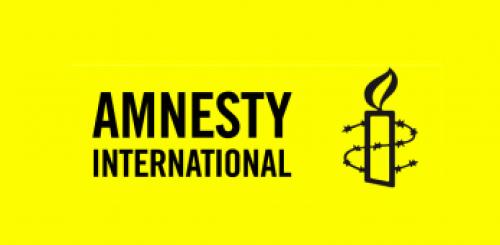Amid reports of an escalating humanitarian crisis in the besieged Libyan city of Derna, Amnesty International is calling on the leader of the Libyan National Army (LNA), General Khalifa Haftar, and all parties involved in the fighting to urgently open humanitarian corridors to give impartial assistance and save the lives of civilians still trapped in the city as the army advances.
Derna residents are bracing themselves for a bloody street battle as the LNA advances its control over the city. Residents say they fear trying to flee from the city because the LNA is known to profile, arbitrarily detain and disappear people they perceive as opponents, especially young men.
“We are receiving horrifying reports from Derna, where a prolonged siege and heavy fighting have left the city on the brink of a humanitarian catastrophe. Blockade tactics are being used to cause unnecessary suffering to ordinary men, women and children, who are now surrounded, with dwindling food, water and medical supplies, and no way out of this desperate situation,” said Heba Morayef, Middle East and North Africa Director at Amnesty International.
“With the LNA escalating its assault on the city, all the parties have an obligation under international humanitarian law to facilitate unimpeded access for impartial humanitarian relief, including medical supplies and food, and to allow civilians to flee the fighting without fear of arbitrary detention, harassment, intimidation and unlawful killings.”
Derna, a port city in the east of Libya, has been under siege since July 2017. Fighting has intensified since mid-May as the LNA has sought to consolidate its power and expel the Derna Security Force, a recently renamed armed group previously known as the Derna Shura Council. The city has also experienced intensive aerial and artillery bombardment and ferocious ground fighting which has reached the centre of the city.
Communications into the city is limited and UN reports, including the Office for the Coordination of Humanitarian Affairs (OCHA), have described the humanitarian conditions as dire. In their latest update on 30 May, OCHA reported severe shortage of food, water and medical supplies. The International Organization for Migration (IOM) reported on 9 June that the number of displaced people from Derna has reached 2,183 individuals.
These reports are consistent with accounts by individuals who spoke with Amnesty International from inside Derna. In alarming reports, individuals have informed the organization that the LNA is deliberately blocking any aid from entering the city, as well as blocking the exit of those seeking permission to leave to access care outside Derna.
Derna’s main hospital is reporting severe shortages of medical supplies; medical professionals have informed Amnesty International that their ability to provide help beyond lifesaving is strained and at this rate even that will not be possible soon if they do not receive the much needed medical assistance.
“Last month LNA forces overseeing the blockade refused to allow the entry of eight containers full of medical supplies. The main Derna hospital can only offer lifesaving stabilizing aid, non-emergency cases are being sent to private clinics,” an official inside Derna hospital told Amnesty International.
Residents inside Derna who spoke with Amnesty International have reported that those wounded because of the fighting must negotiate individually, through their tribal connections, to be allowed out to obtain medical treatment outside of Derna.
“Amnesty International calls on LNA forces to stop obstruction of humanitarian aid operations. All parties must facilitate the entry of humanitarian relief supplies and the work of impartial humanitarian agencies, while ensuring the safe exit of any civilians wising to leave. Independent monitors should be allowed to supervise relief operations and the evacuation of civilians wishing to flee.”
“Derna has a population of over 120,000 people, [and] we are all being punished. We got rid of ISIS only to enter another [terrible] situation. We just want to return to our normal lives,” one resident told Amnesty International.
“The indiscriminate attacks and shelling in heavily populated areas must end. All sides must endeavour to protect civilians and adhere to their obligations under international humanitarian law or risk being responsible for war crimes,” said Heba Morayef.
Derna residents are bracing themselves for what may possibly be a drawn out bloody street battle, similar to the LNA campaign in Benghazi that left scored dead including civilians in Ganfouda in March 2017. The LNA has a history of using abhorrent tactics against civilians, including extra judicial, enforced disappearances and indiscriminate attacks that have killed and injured civilians that in some cases amount to war crimes.






















